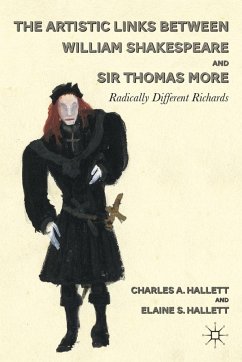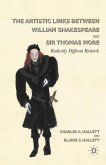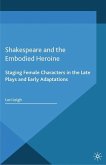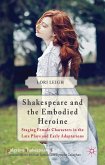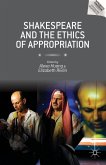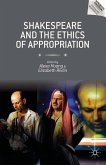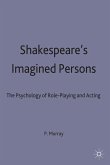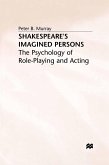The Halletts' investigation differs from anything that has been written about the relationship between Thomas More and William Shakespeare in that it approaches the subject from a dramaturgical point of view. What was Shakespeare the artist looking for that made him seize upon More's History per se and base Richard III entirely on the brief four-month period covered in More's book, compressing time rather than telescoping it? What did Shakespeare find in More that resulted in his amazing new ability to create dramatic scenes of the sort that one finds in Richard's wooing of the Citizens at Baynard's Castle, which More himself did not dramatize but harshly denigrated? What was the imaginative process that enabled Shakespeare to create the scenes in which Richard woos first Lady Anne and later Queen Elizabeth (neither of which are in More) on the model of what he learned from writing the Baynard's Castle scene? How was Shakespeare able to separate out More's negative and disparaging view of Richard's thespian abilities (which, More assures his readers, everyone instantly saw through) from the buoyant and positive view that Shakespeare's Richard offers of his own powers as dramatist, presenter, actor, and would-be king? All of these questions need to be answered. No book has yet attempted to define in specific terms either what Shakespeare learned from his study of More's History or how he learned it. This book, we hope, is unique. Shakespeare's newly discovered dramatic techniques are explicated in the various chapters with clarity and strength in a way that can benefit future generations of artists.
"One of the strengths of this book is the way it takes the craft of characterization seriously. The majority of its pages are taken up by careful comparison of passages and an analysis of the way Shakespeare 'removes', 'binds', 'substitutes' and 'transforms' elements that are there in his source text, creating, first a complicity between the audience and his protagonist and then removing it suddenly as the play draws to its close. The authors pour constant praise on the artistic judgement of the dramatist as he 'deftly', 'brilliantly', 'marvellously' works towards 'the peak of his power', taking not More but Richard himself as the 'mentor' by whose aid he makes the breakthrough to a mature theatrical style." - Times Literary Supplement
"This wonderfully erudite study should be of great interest to all lovers of Shakespeare in particular and the theatre in general. I found it very easy to read and very hard to put down." - Frederick Pyne, actor and former president of the British Actor's Equity
"The relevance of More to Richard III is familiar enough, but the script's transformation of his details has never been so comprehensively reviewed. The book proceeds through the play scene by scene, ingeniously stressing the cumulative effect of Shakespeare's development of Richard's perspective as the key to the success of the script. Many of the detailed observations are thoughtful and clarify the exact working of theatrical effects in the scenes, which shouldbe of interest to actors as well as critics." - Hugh Richmond, Professor Emeritus of English, University of California Berkeley and Director of "Shakespeare's Staging"
"This study offers a focused analysis of the dramatic structure of Richard III and a compelling answer to the question of how Shakespeare became Shakespeare. Those who thought they knew Richard III will be startled by the insights the Halletts offer." - June Schlueter, Charles A. Dana Professor Emerita of English, Lafayette College
"This wonderfully erudite study should be of great interest to all lovers of Shakespeare in particular and the theatre in general. I found it very easy to read and very hard to put down." - Frederick Pyne, actor and former president of the British Actor's Equity
"The relevance of More to Richard III is familiar enough, but the script's transformation of his details has never been so comprehensively reviewed. The book proceeds through the play scene by scene, ingeniously stressing the cumulative effect of Shakespeare's development of Richard's perspective as the key to the success of the script. Many of the detailed observations are thoughtful and clarify the exact working of theatrical effects in the scenes, which shouldbe of interest to actors as well as critics." - Hugh Richmond, Professor Emeritus of English, University of California Berkeley and Director of "Shakespeare's Staging"
"This study offers a focused analysis of the dramatic structure of Richard III and a compelling answer to the question of how Shakespeare became Shakespeare. Those who thought they knew Richard III will be startled by the insights the Halletts offer." - June Schlueter, Charles A. Dana Professor Emerita of English, Lafayette College

